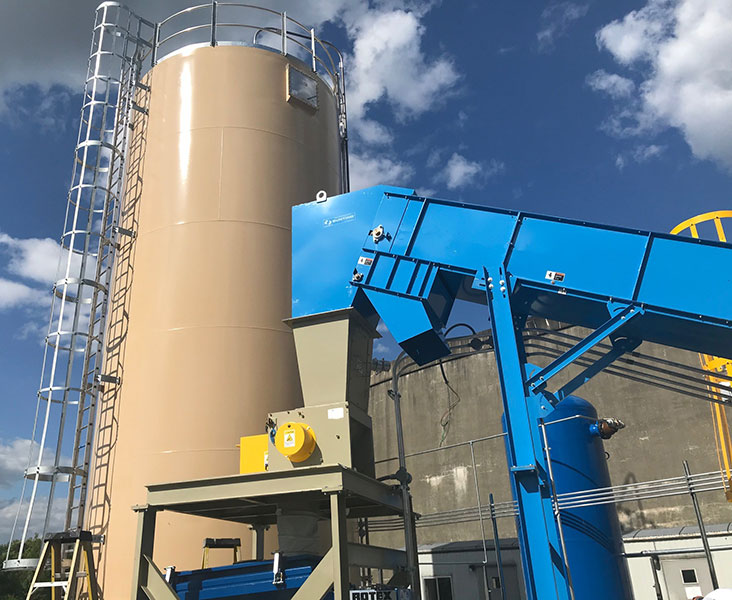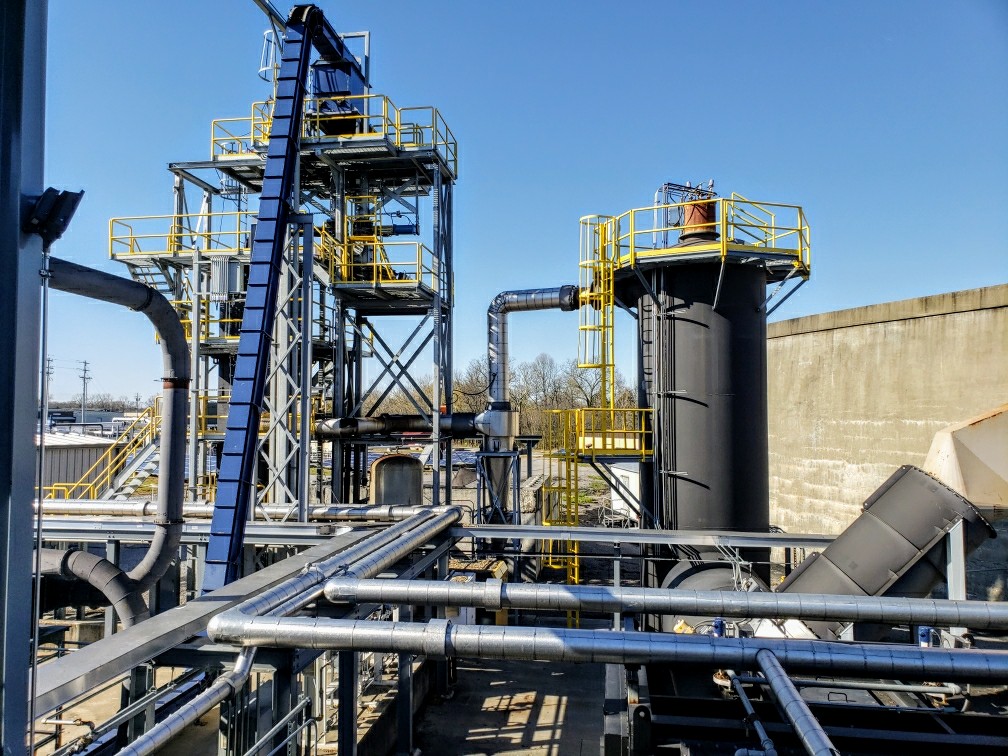
Commercial Renewable Energy Plant
CASE STUDY:
The demand for certified biochar for personal and industrial use is growing worldwide. Industries are using it to create more carbon-neutral products in order to meet zero carbon sustainability goals. Individuals are using it to improve their lawns, garden, and plants. The world’s largest downdraft gasifier, commissioned in October 2016 in Lebanon, Tennessee, is an ideal facility for this type of production.

PROBLEM:
Aries leases and operates the facility to create Aries GREEN® certified biochar-based products. Keeping the plant operating also continues the diversion of waste wood from local landfills, improving the local sustainability footprint. Aries GREEN® is a high carbon content biochar for use as an all-natural soil conditioner and agricultural soil amendment, fuel, a filtering agent, and a base material for the production of various consumer products.
APPROACH:
Aries developed the ACE DDLF-2000 (64T/day) downdraft gasification system on one acre in Lebanon that operates on the following specifications:
- Input Materials: Waste wood is cut to ¼ to 4-inches in size; Wood is primarily soft wood from discarded crates and pallets from local businesses. All diverted from landfills.
- Process: Syngas produced (85% by volume input) is combusted in an industrial thermal oxidizer (an emissions control device). Thermal energy is transferred to heat a thermal fluid that drives three Organic Rankine Cycle generators with a total output capacity of 420 Kw that offsets the electrical usage at the wastewater treatment plant next door.
- Output: 15% of input results in biochar that is USDA certified 96% biobased carbon. Aries GREEN® biochar is certified by the USDA and the International Biochar Initiative (IBI).

RESULTS:
The Aries downdraft gasification system yields beneficial biochar. When used as a soil conditioner, it has the potential to:
- Capture excess nitrogen and toxins – protecting waterways and groundwater quality;
- In making biochar via gasification, create an alternative energy source for generating heat and power, and valuable by-products of syngas and biofuels, thereby reducing CO2 emissions;
- Divert waste wood from local landfills and fees associated with its disposal
- Reduce the need for (and use of) fossil-fuels and conventional fertilizers;
- Turn biomass and biowaste into value-added products while creating jobs, and
- Safely sequester CO2 for thousands of years, which slows climate change.
TESTIMONIAL:
This is such a great example of sustainability and could be a wonderful model for the rest of the world. They are using systems thinking to reduce waste, produce renewable energy, capture heat that normally would be wasted, and are also producing biochar which has great agricultural benefits.
– Judge from Environmental Leader Awards


